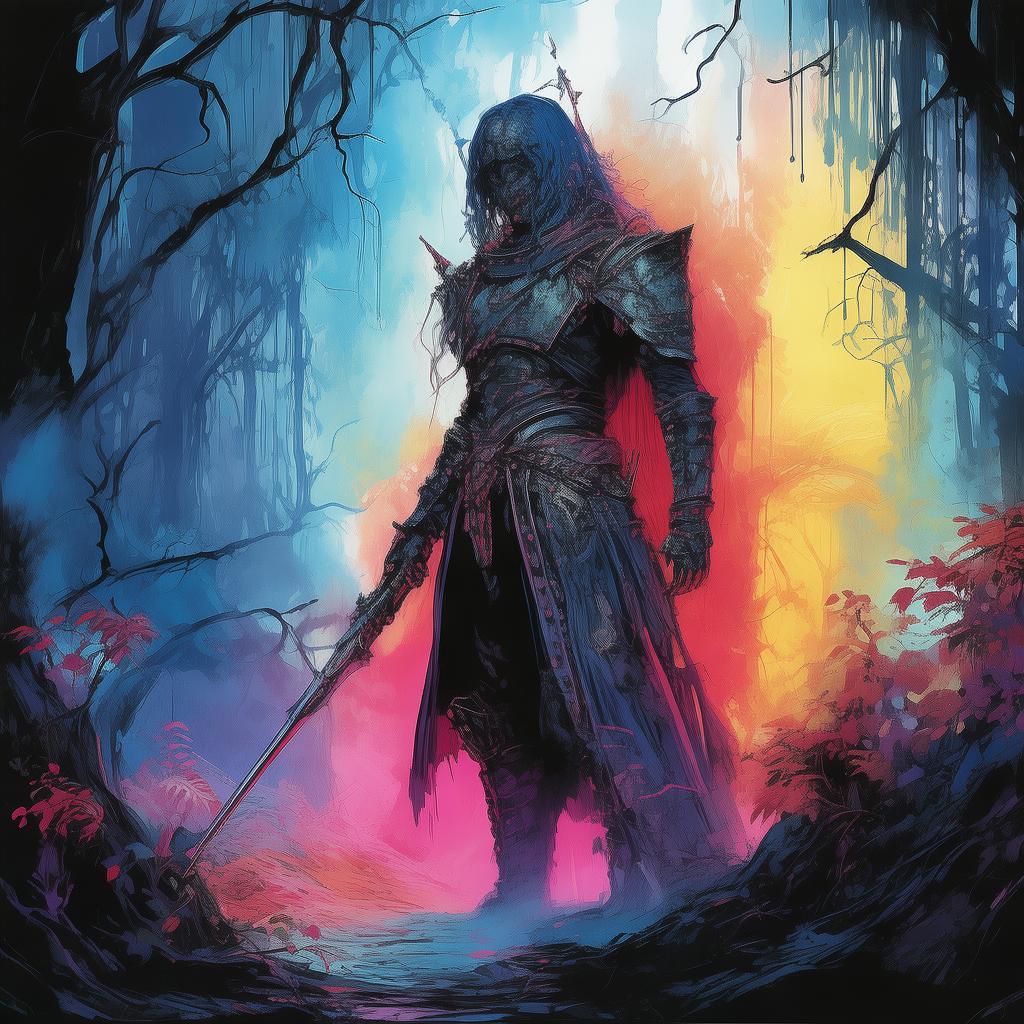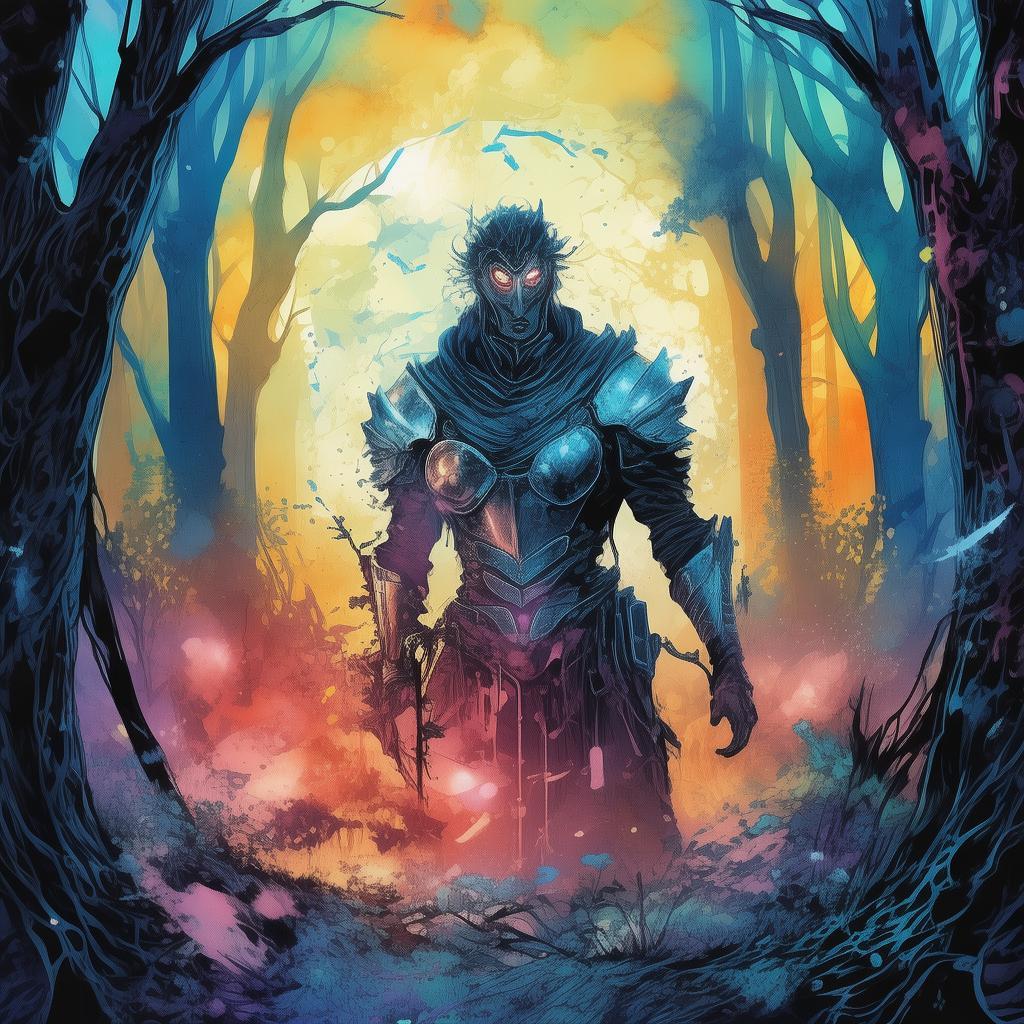The Labyrinth of the Forbidden Temple
In the heart of the ancient Chinese mountains, where the clouds kissed the peaks and the whisper of the wind carried the secrets of ages past, there stood a temple that was said to be the resting place of ancient spirits. The temple was known as the Forbidden Temple, a place of profound mystery and forbidden knowledge. It was said that those who dared to enter would never return the same.
The Confucian monk, named Hong, had spent his life in pursuit of wisdom, seeking the truth that lay beyond the mundane. His journey had led him to the edge of the world, and now, with the guidance of an ancient scroll, he found himself at the entrance of the Forbidden Temple.
The entrance was a narrow stone arch, adorned with carvings of mythical creatures and ancient runes that glowed faintly in the dim light. Hong, a man of quiet determination, pushed open the heavy wooden door and stepped into the labyrinthine temple.
The interior was a maze of corridors and rooms, each more foreboding than the last. The air was thick with the scent of incense and the echo of forgotten prayers. Hong moved with deliberate steps, his heart pounding with a mix of fear and excitement.
As he ventured deeper, the walls seemed to come alive with the whispers of the past. The images of his ancestors appeared before him, each one a testament to the trials and triumphs of their lives. He saw his lineage's founders, scholars who had dedicated their lives to the pursuit of knowledge, and he felt the weight of their legacy upon his shoulders.
In one chamber, the air grew colder, and the walls seemed to pulse with an eerie energy. Hong's heart raced as he realized he had reached the heart of the labyrinth. In the center stood an ancient alter, and upon it, a single scroll. It was inscribed with cryptic symbols and ancient wisdom.
Hong approached the alter, his mind racing with questions. He unrolled the scroll and began to read the words that seemed to come alive with power. The scroll spoke of the spiritual essence that flowed through all things, a force that bound the universe together. It spoke of the Confucian teachings and how they were not just moral precepts but keys to unlocking the mysteries of existence.
As Hong read, he felt a profound connection to the words, as if they were speaking directly to his soul. He understood that the wisdom he sought was not just in the books he had read but in the living essence of the world itself. The teachings of Confucius were not just about human relations but about the harmony of the cosmos.

Suddenly, the room began to shake, and the walls seemed to close in around him. Hong realized that the temple was not just a physical structure but a manifestation of his own spiritual journey. He was being tested, and the labyrinth was the path he must traverse to find his true self.
With a deep breath, Hong stepped into the heart of the labyrinth, his path illuminated by the glow of the ancient scroll. He encountered various challenges, from riddles that tested his intellect to trials that tested his moral compass. Each obstacle was a reflection of his own inner conflicts, and he found that his resolve was strengthened with each passing trial.
As the labyrinth twisted and turned, Hong began to see the interconnectedness of all things. The past, present, and future merged into a single moment, and he understood that his journey was not just his own but part of a grander tapestry that connected him to all of humanity.
Finally, the labyrinth brought him to a chamber filled with light. In the center stood a figure, an ancient monk who looked exactly like Hong but with a knowing smile. It was his ancestor, the founder of his lineage, who had walked this path before him.
The ancestor spoke, his voice echoing through the chamber. "Hong, you have come to understand that the true wisdom of Confucius is not in the words but in the spirit. You must carry this wisdom and use it to bring harmony to the world."
With a newfound sense of purpose, Hong took his leave of the ancestor, and as he emerged from the Forbidden Temple, he felt a profound transformation. He was no longer the same man who had entered; he was a vessel of wisdom, a bridge between the ancient and the modern, a guardian of the spiritual essence of Confucianism.
The journey through the Forbidden Temple had not only opened Hong's eyes to the mysteries of the cosmos but had also given him the strength and insight to use his knowledge for the greater good. He returned to his monastic life, but now he was a different monk, one who had seen beyond the veil of the physical world and had found his true calling.
And so, the legend of the Labyrinth of the Forbidden Temple spread far and wide, inspiring monks and scholars for generations to come, reminding them that the true path to wisdom lies not just in the pursuit of knowledge but in the journey of the soul.
✨ Original Statement ✨
All articles published on this website (including but not limited to text, images, videos, and other content) are original or authorized for reposting and are protected by relevant laws. Without the explicit written permission of this website, no individual or organization may copy, modify, repost, or use the content for commercial purposes.
If you need to quote or cooperate, please contact this site for authorization. We reserve the right to pursue legal responsibility for any unauthorized use.
Hereby declared.









